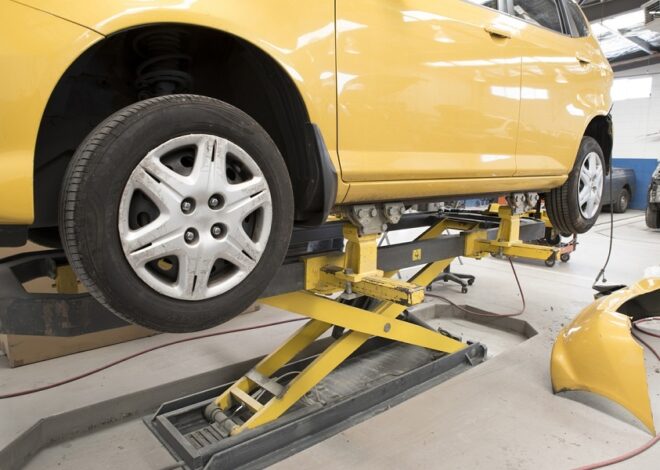
Don’t Get Stranded: The Intelligent Driver’s Guide to Professional Towing in Singapore
When your vehicle fails you on Singapore’s bustling roadways, accessing reliable towing services becomes an urgent necessity rather than a mere convenience. The intricate network of expressways, urban streets, and highways that comprise Singapore’s transportation infrastructure presents unique challenges for motorists experiencing breakdowns. Understanding how to navigate this situation efficiently can transform a potential catastrophe into a manageable inconvenience.
The Science of Vehicle Failures in Singapore’s Climate
The tropical climate of Singapore creates distinctive stresses on automotive systems that often escape the notice of casual observers. High humidity combined with consistent heat produces an environment where certain mechanical failures occur with greater frequency than in temperate climates. This is not speculation but an observable fact.
The evidence reveals that cooling systems operate near their design limits in ambient temperatures regularly exceeding 30°C. Battery electrolyte evaporates at accelerated rates, and rubber components deteriorate more rapidly. These are not random events but predictable consequences of thermodynamic principles and chemical processes acting upon automotive components.
The Technological Revolution in Roadside Assistance
The integration of digital technology into towing operations represents a remarkable advancement in service delivery efficiency. GPS-enabled dispatch systems have revolutionised response protocols, reducing average wait times by approximately 35% over the past decade in Singapore’s urban areas.
“The application of algorithmic routing and real-time traffic analysis has transformed our ability to reach stranded motorists quickly. What once relied on imprecise verbal directions now operates with mathematical precision,” explains a technology implementation specialist working with multiple towing operations across Singapore.
This digital transformation exemplifies how evolutionary principles apply equally to service industries—those providers who adapt to technological advancements persist, while those resistant to change face competitive extinction in Singapore’s demanding market environment.
When Professional Intervention Becomes Necessary
Recognising when self-help becomes counterproductive represents a critical decision point for any stranded motorist. Certain scenarios unambiguously call for professional towing:
- Complete electrical system failure rendering the vehicle inoperable
- Engine overheating with visible steam or coolant loss
- Transmission malfunctions preventing proper gear engagement
- Severe tyre failure without available replacement
- Post-accident situations with structural or mechanical compromise
- Vehicle immobilisation in hazardous locations such as expressways
“Amateur recovery attempts often result in secondary damage that compounds the original problem. What begins as a simple breakdown can cascade into multiple system failures when handled improperly,” notes a veteran Singapore roadside assistance specialist with two decades of experience.
The Evolution of Modern Towing Services
The towing industry has evolved significantly beyond simple vehicle transport. Market competition has been selected for providers offering comprehensive roadside assistance packages. The discerning motorist should examine several factors when selecting a service:
- Response time guarantees across Singapore’s various districts
- Equipment compatibility with modern vehicle designs
- Technical expertise in hybrid and electric vehicles
- Transparent pricing structures
- Digital tracking capabilities for accurate arrival estimates
The Mechanics of Proper Vehicle Recovery
Vehicle recovery represents a fascinating application of mechanical principles. Different drivetrain configurations—front-wheel, rear-wheel, all-wheel, and four-wheel drive systems—require specific handling approaches to prevent transmission damage.
“The towing methodology must align precisely with the vehicle’s design parameters. Using incorrect techniques can cause catastrophic damage to differentials, transfer cases, or transmissions—often resulting in repair costs exceeding thousands of dollars,” explains a certified vehicle recovery technician operating throughout Singapore.
For sophisticated vehicles, flatbed transportation provides the optimal solution, eliminating driveline stress by removing all wheels from contact with the road surface—an elegant solution to a complex mechanical problem.
Financial Considerations of Emergency Towing
The economic calculation of professional towing extends beyond the immediate service fee. A comprehensive cost analysis includes:
- Preventative value against secondary mechanical damage
- Opportunity cost of personal time during self-recovery attempts
- Risk mitigation regarding traffic violations for improper roadside stops
- Insurance implications of amateur recovery attempts
- Productivity preservation through the swift resolution of transport disruptions
“When evaluating cost, one must consider not merely the immediate expense but the potential downstream financial implications of improper vehicle handling. The apparent economy of amateur solutions often proves illusory when accounting for total impact,” observes a Singapore traffic management coordinator.
Preparing for the Inevitable: The Rational Approach
The evidence suggests that most drivers will experience vehicle breakdowns at some point. Applying probability theory to driving patterns indicates that preparation represents the optimal strategy:
- Programme emergency contact numbers into multiple accessible locations
- Understand your vehicle’s specific recovery points and requirements
- Maintain basic emergency supplies (water, non-perishable food, medication)
- Document insurance coverage details for towing services
- Invest in visibility enhancement tools (reflective triangles, LED beacons)
Beyond Traditional Towing: The Expanding Service Ecosystem
Modern towing providers have adapted to changing market demands through service diversification:
- On-site minor repairs eliminating the need for transportation
- Battery jumpstart and replacement services
- Fuel delivery for empty tanks
- tyre changing and inflation assistance
- Vehicle lockout solutions for key-related emergencies
This expansion represents a fascinating example of service evolution in response to consumer needs—analogous to adaptive radiation in biological systems, where organisms diversify to fill available ecological niches.
Conclusion
The transportation ecosystem of Singapore demands sophisticated response mechanisms when vehicular failures occur. By understanding the science behind common breakdowns, recognising when professional intervention becomes necessary, and preparing adequately for inevitable emergencies, the rational motorist transforms potential disasters into manageable incidents. The evidence overwhelmingly suggests that preparation, combined with access to professional assistance, represents the optimal strategy for navigating the challenges of vehicle emergencies. Don’t leave your vehicular fate to chance—establish a connection with reputable towing services before you need them.



